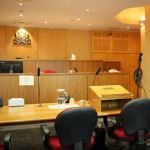Television Presenter Could Face Contempt of Court Charges

The trial of Bruce Lehrmann, the man accused of sexually assaulting Brittany Higgins in Parliament House in 2019, was due to begin in the Supreme Court of the Australian Capital Territory on Monday.
But an acceptance speech by television presenter Lisa Wilkinson has resulted in the trial being ‘vacated’ (cancelled) due to the unfair prejudice it could cause to the defendant.
Ms Wilkinson made the speech when she accepted the Silver Logie for her coverage of the Higgins story.
However, her statements supporting the complainant are reported to have been made after she was warned not to do so by the court in a pre-trial conference on 15 June 2022, as she is a potential prosecution witness in the trial.
According to reports, Ms Wilkinson was specifically warned not to make such statements at the nationally televised Logies as this could result in an unfair trial, and her conduct has the potential to land the presenter on the wrong side of the law – with contempt of court charges now being considered against her.
Justice delayed, once again
It is often said that justice delayed is justice denied, and court delays created by COVID restrictions have certainly led to a long wait for justice for all parties concerned in court proceedings – be they complainants, defendants or their family members.
The alleged sexual assault of Brittany Higgins occurred on 22/23 March 2019. Charges were laid against Mr Lehrmann in 2021, shortly after Ms Higgins went public with her story on 15 February 2021.
It is now mid-2022, and the trial has been delayed until 4 October 2022 – when it is expected to commence unless there are any further incidents.
High profile case
An enormous amount of media and public attention has been placed on the case since last year.
It is credited for triggering March 4 Women rallies all over the country, as well as a number of reviews and investigations into the toxic workplace culture within Parliament House and its associated workplaces.
Commentators, journalists, social media keyboard warriors and the people clever enough to make memes have all chimed in, in various ways, on information about the case that’s available in the public domain.
Potential unfair prejudice
In May this year, Mr Lehrmann’s lawyers asserted their concerns regarding the overwhelmingly adverse publicity to their client, especially in this age of social media where everyone seems to have a strong opinion and is not afraid to voice it, and where unfairly prejudicial information has the potential to go ‘viral’.
Mr Lehrmann’s defence team made an application to the court for a permanent stay of proceedings on the basis that the intense and prolonged publicity would make it impossible to find 12 impartial jurors required for a fair trial.
This is an application to permanently halt the proceedings, which is different to a temporary stay application which, if successful, results in a trial being postponed until the impact of the unfair prejudice subsides.
Their application was dismissed.
Lisa Wilkinson could face criminal charges
However, moving onto the events of recent days, it has been reported that the Supreme Court warned Lisa Wilkinson ahead of the Logies – in a pre-trial conference earlier this month – not to mention the case in her speech, as she is expected to be called as a witness in the trial.
Given that Brittany’s story is the very piece of journalism that Ms Wilkinson won the award for, some may argue that it was impossible for her not to mention it.
But Lisa Wilkinson is a veteran journalist, editor and television presenter.
Many who work in these areas of media might argue that she should have known better, and ‘kept her speech brief’ considering the Higgins vs Lehrmann trial was only days away.
Yes, we need people to speak up about sexual assault. But in this instance, timing has been critical.
It’s possible that under the circumstances, Lisa Wilkinson may now face criminal charges.
Presumption of innocence
Mr Lehrmann has always maintained his innocence and, in Australia, he is entitled to be presumed innocent until and unless he is proven to be guilty in a court of law.
A new trial date of 4 October 2022 has been set – a delay which is undoubtedly a disappointment to both the complainant and defendant, who will almost certainly be wanting to move forward with their lives. It is hoped the situation will subside by then without further incidents giving rise to the potential of an unfair trial.
ACT Chief Justice Lucy McCallum said she delayed the case “regrettably and with gritted teeth” and that ” somewhere in this debate, the distinction between an untested allegation and the fact of guilt has been lost”.
Contempt of court in New South Wales
A contempt of court is an act that has the tendency to interfere with or undermine the authority, performance, or dignity of the court or those who participate in court proceedings.
The following conduct has been found to meet the legal test for contempt:
- Protracted swearing and yelling at a magistrate,
- Filming witnesses in an attempt to intimidate them,
- Evading questions in court or refusing to answer them,
- Refusing to take an oath or affirmation in court,
- Refusing to leave the courtroom after being directed to do so, and
- Disobeying court orders such as subpoenas to attend court or to produce evidence, or not to comment publicly about a case.
For a person to be found guilty of contempt of, the prosecution must establish each of the following ‘elements’ (or ingredients) of the offence beyond a reasonable doubt:
- The defendant engaged in conduct that had the tendency to interfere with or undermine the authority, performance or dignity of the court or those who participate in court proceedings, and
- The defendant intended to do the act.
The prosecution will fail if it cannot prove each of these elements to the required standard.
It is important to note, however, that the prosecution is not required to prove that the defendant intended to actually interfere with the administration of justice – just that he or she intended to do an act which, viewed by a reasonable person, had the tendency to do so.
Legal defences
In addition to the requirement to prove each element of the offence, the prosecution must also disprove any of the following defences if properly raised:
- Duress, which is where you were threatened or coerced,
- Necessity, where the act was necessary to avert danger, and
- Self-defence, where you engaged in the act to defend yourself or another
It must disprove any such defences beyond all reasonable doubt.
Defending contempt of court charges
Before you can be found guilty of contempt of court, the prosecution must prove beyond a reasonable doubt that:
- You engaged in conduct that had the tendency to interfere with or undermine the authority, performance, or dignity of the court or those who participate in court proceedings, and
- You intended to do that act.
There are a number of ways to defend contempt of court charges, including raising the fact that:
- The prosecution cannot prove you engaged in the alleged conduct,
- The prosecution cannot prove that conduct had the tendency to interfere with or undermine the authority, performance, or dignity of the court or those who participate in court proceedings,
- The prosecution cannot prove you intended to do the act, rather than did it by reason of recklessness or mistake, or
- You have a valid legal defence which the prosecution cannot disprove beyond a reasonable doubt.
If any of these matters prevail, you must be found not guilty of the offence.








